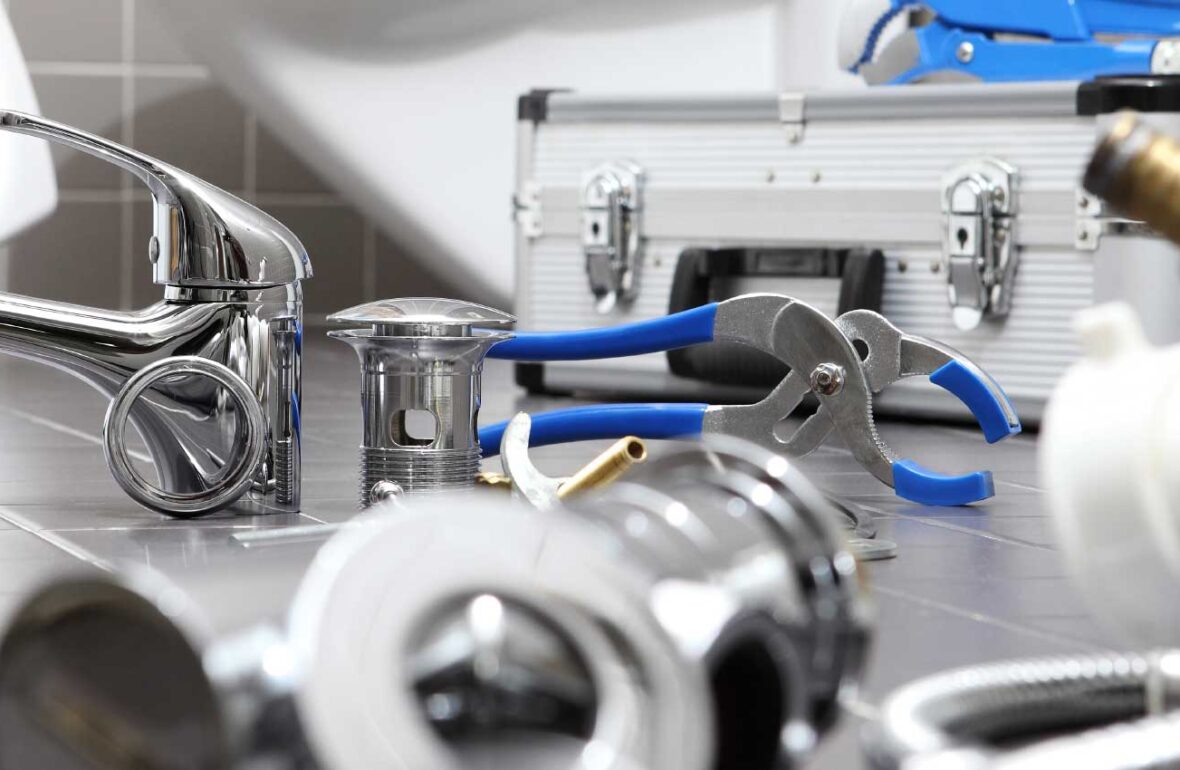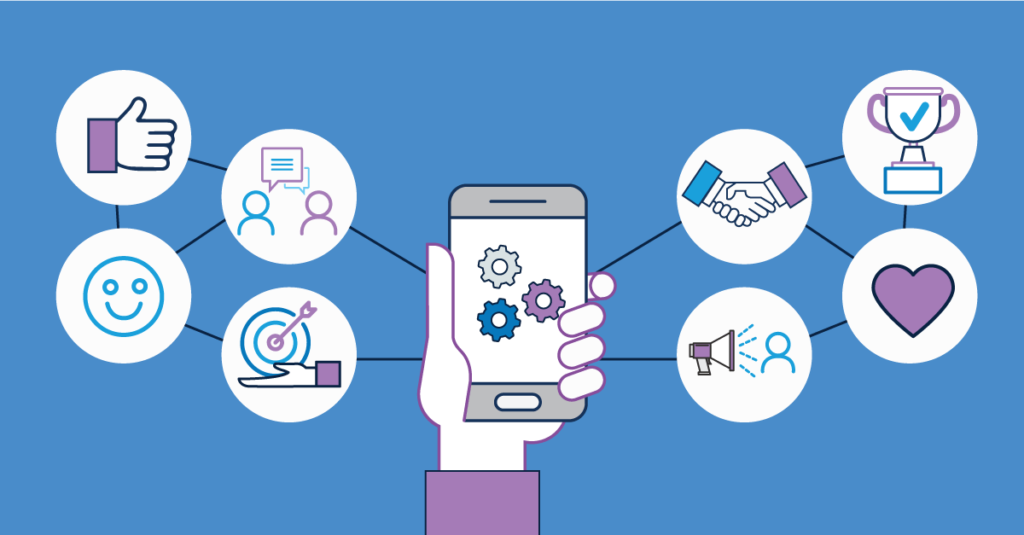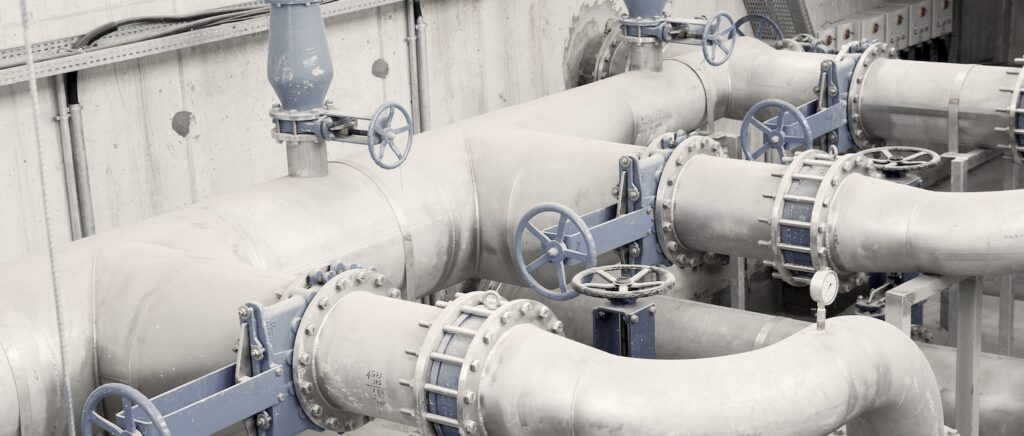
Introduction to the current state of plumbing
Welcome to the future of plumbing! In a world where technology is advancing at lightning speed, no industry is left untouched. Plumbing, a vital aspect of our everyday lives, is also undergoing a remarkable transformation thanks to cutting-edge advancements in technology. Gone are the days when plumbers solely relied on traditional tools and techniques. The future of plumbing promises an exciting array of innovative solutions that are set to revolutionize the way we think about this essential trade. So buckle up as we delve into the realm of plumbing tech and explore how it is reshaping the industry for good!
Importance Of Technology In The Plumbing Industry

The plumbing industry has come a long way from its humble beginnings. With advancements in technology, it has transformed into a highly efficient and innovative field. Technology plays a crucial role in the plumbing industry, revolutionizing how tasks are performed and enhancing overall efficiency.
One of the key benefits of technology in plumbing is improved accuracy. Advanced tools and equipment allow plumbers to diagnose issues with greater precision, reducing guesswork and minimizing errors. This leads to faster repairs and more cost-effective solutions for customers.
Moreover, technology enables plumbers to work more efficiently. For example, video inspection cameras can be used to locate blockages or leaks within pipes without the need for extensive digging or exploration. This saves time and reduces disruption for both plumbers and customers.
Artificial intelligence (AI) is also making its mark on the plumbing industry. AI-powered systems can analyze data from sensors installed in plumbing systems to detect potential problems before they escalate into major issues. This proactive approach helps prevent costly damages and improves maintenance practices.
In addition to enhanced diagnostics, advancements have been made in materials used for plumbing installations as well as tools utilized by plumbers. From durable corrosion-resistant pipes to lightweight yet robust wrenches, these innovations improve longevity while allowing for easier installation procedures.
Energy efficiency is another area where technology shines bright in the world of plumbing. Water-saving fixtures such as low-flow toilets and faucets help conserve water resources while reducing utility bills for households or businesses alike.
Furthermore, sustainable solutions like solar-powered water heaters are gaining popularity due to their environmental friendliness and cost-effectiveness over time. These technologies not only benefit individual consumers but also contribute towards achieving global sustainability goals.
Technology has also had a significant impact on customer experience within the plumbing industry. Online scheduling platforms make it convenient for customers to book appointments at their own convenience while digital communication channels enable prompt responses to queries or concerns.
With real-time updates on service progress through mobile applications or notifications via email/SMS, customers feel more informed and valued throughout the entire process. This level of
The Role Of Artificial Intelligence In Plumbing

Artificial intelligence (AI) has made its way into almost every industry, and plumbing is no exception. With AI technology, plumbers can now benefit from advanced systems that can accurately detect issues, analyze data, and provide effective solutions.
One of the key roles of AI in plumbing is predictive maintenance. By utilizing machine learning algorithms, AI systems can monitor the health of plumbing systems and predict when repairs or replacements will be needed. This proactive approach helps to prevent costly emergencies and minimize downtime.
Furthermore, AI-powered robots are revolutionizing the field by performing tasks that were once deemed difficult or dangerous for humans. These robots can navigate through narrow pipes, identify blockages with precision cameras, and even carry out repairs without causing further damage.
Additionally, AI chatbots have enhanced customer service in the plumbing industry. They provide instant support by answering common queries and guiding users through troubleshooting steps before a plumber is dispatched.
In conclusion,bthe integration of artificial intelligence technology into the plumbing industry brings numerous benefits such as improved efficiency,safety,and customer satisfaction. As this technology continues to advance,the future looks promising for both plumbersand their clients alike!
Advancements In Materials And Tools Used For Plumbing

Advancements in materials and tools used for plumbing have revolutionized the way plumbers approach their work. Gone are the days of relying solely on traditional materials like copper and iron pipes. Today, there is a wide range of innovative materials available that offer improved durability, flexibility, and resistance to corrosion.
One such material is PEX (cross-linked polyethylene), which has gained popularity in recent years. PEX pipes are more flexible than traditional metal pipes, making installation easier and allowing for greater design flexibility. Additionally, they are resistant to freezing temperatures, reducing the risk of burst pipes during cold winter months.
Another notable advancement is the use of smart technology in plumbing tools. Plumbers now have access to advanced diagnostic devices that can quickly identify leaks or blockages within a plumbing system without requiring invasive measures. These tools not only save time but also allow for more accurate repairs.
In terms of tools, advancements have been made in pipe cutters and wrenches as well. Electric pipe cutters offer precise cuts with minimal effort while adjustable wrenches with ergonomic designs provide greater comfort during use.
These advancements in materials and tools enhance efficiency and productivity for plumbers while ensuring long-lasting results for customers. As technology continues to evolve, we can expect even further improvements that will shape the future of plumbing industry.
Energy Efficient And Sustainable Plumbing Solutions

Energy efficiency and sustainability have become increasingly important in every aspect of our lives, including plumbing. As we strive to reduce our carbon footprint and conserve resources, the plumbing industry has been quick to adopt new technologies that promote energy-efficient and sustainable solutions.
One major advancement in this area is the development of water-saving fixtures and appliances. Low-flow toilets, faucets, and showerheads are now widely available, helping to significantly reduce water consumption without sacrificing performance. These fixtures not only save water but also lower utility bills for homeowners.
Another innovative solution is the use of smart technology in plumbing systems. Smart thermostats can regulate water temperature more efficiently by learning your usage patterns and adjusting accordingly. This not only saves energy but also enhances comfort by ensuring a consistent temperature throughout your home.
Additionally, advancements in renewable energy sources have opened up new possibilities for sustainable plumbing solutions. Solar-powered water heaters can provide hot water using clean energy from the sun, reducing reliance on traditional fossil fuels.
Furthermore, there has been a growing focus on recycling wastewater through greywater systems. Greywater refers to gently used household wastewater from sinks, showers, and washing machines that can be safely reused for non-potable purposes such as irrigation or toilet flushing. This reduces strain on freshwater supplies while promoting sustainability.
Incorporating these energy-efficient and sustainable plumbing solutions not only benefits the environment but also offers long-term cost savings for homeowners by reducing their utility bills. As technology continues to advance in this field, we can expect even more innovative solutions that will further enhance efficiency while minimizing environmental impact.
By embracing these advancements in sustainable plumbing technology today, we can contribute towards creating a greener future for generations to come!
Impact Of Technology On Customer Experience And Service

The impact of technology on customer experience and service in the plumbing industry cannot be underestimated. With advancements in technology, plumbers are now able to provide more efficient and effective service to their customers.
One way technology has improved customer experience is through the use of online scheduling systems. Customers can now easily book appointments with plumbers at their convenience, eliminating the need for phone calls and potential miscommunication.
Additionally, technology has allowed plumbers to use digital tools such as video inspections to diagnose plumbing issues remotely. This not only saves time but also provides a higher level of accuracy in identifying problems.
Furthermore, customer service has been enhanced through the use of mobile apps that allow customers to track the progress of their plumber and receive real-time updates. This transparency builds trust between the plumber and customer, leading to a positive overall experience.
Moreover, technology has enabled plumbers to offer virtual consultations where they can assess plumbing needs without physically being present at the location. This saves both time and money for customers while still receiving expert advice.
Technology has revolutionized the way plumbers interact with their customers by providing convenient scheduling options, remote diagnostics capabilities, real-time updates through mobile apps, and virtual consultations. The future of plumbing will continue to see advancements in technology that further enhance customer experience and service within this industry.
Challenges And Limitations Of Incorporating Technology In Plumbing

As with any industry, incorporating technology into plumbing comes with its own set of challenges and limitations. While advancements have made significant improvements in efficiency and convenience, there are still obstacles that need to be overcome.
One challenge is the initial cost of implementing new technologies. Upgrading equipment and investing in smart systems can require a substantial financial investment for both plumbers and customers. However, it’s important to consider the long-term benefits these advancements bring, such as reduced water consumption and lower utility bills.
Another limitation is the learning curve associated with new technologies. Plumbers may need additional training or certifications to effectively use advanced tools and software. This can take time and resources to adapt to the changing landscape.
Additionally, compatibility issues between different manufacturers’ products can arise when integrating various smart devices within a plumbing system. Ensuring seamless communication between different components can pose technical challenges that require careful planning and troubleshooting.
Privacy concerns also come into play when utilizing technologically advanced plumbing systems. With connected devices collecting data about water usage patterns or leaks, protecting customer privacy becomes crucial.
Reliance on technology introduces vulnerabilities to cybersecurity threats. As more aspects of plumbing become digitized, ensuring robust security measures becomes essential in safeguarding sensitive information from unauthorized access or malicious attacks.
Despite these challenges and limitations, embracing technology in plumbing holds immense potential for enhancing efficiency, sustainability, and customer experience. It requires a proactive approach from plumbers who will need to continuously update their skills while addressing potential hurdles along the way.
Predictions For The Future Of Plumbing Technology
1. Integration of Internet of Things (IoT): As technology continues to advance, we can expect to see more integration of IoT in plumbing systems. Imagine a world where your pipes can communicate with you and alert you about potential leaks or water pressure issues through your smartphone. This level of connectivity will not only enhance convenience but also help homeowners save money by detecting problems early on.
2. Enhanced water conservation: With increasing concerns about water scarcity, the future of plumbing technology will focus heavily on water conservation. We can anticipate the development of smart faucets and toilets that use sensors to regulate water flow based on usage needs, preventing wastage.
3. 3D printing revolutionizing repairs: Traditional methods of repairing pipes and fixtures often involve invasive measures that disrupt daily life in homes or businesses. However, advancements in 3D printing may soon allow plumbers to create custom replacement parts right at the job site, reducing time and costs associated with repairs.
4. Artificial intelligence-driven diagnostics: Plumbers are already utilizing video inspection tools to diagnose pipe blockages without unnecessary digging or demolition. In the future, AI algorithms could analyze these videos in real-time, enabling plumbers to quickly identify issues and offer precise solutions.
5. Green energy integration: As sustainable practices become increasingly important, we can expect plumbing systems to integrate renewable energy sources such as solar panels or heat pump technology for heating water efficiently while reducing reliance on traditional fossil fuel-powered options.
6. Augmented reality training: With an aging workforce in the plumbing industry, augmented reality (AR) training programs could prove invaluable for upskilling new technicians quickly and effectively without compromising quality standards.
7. Nanotechnology advancements: Nanotechnology has immense potential in improving plumbing system efficiency by creating self-cleaning pipes resistant against corrosion or mineral buildup while maintaining optimal flow rates
These predictions paint an exciting picture for the future of plumbing technology – one that combines convenience, sustainability, and efficiency. By embracing these advancements, plumbers
How Plumbers Can Adapt To These Changes
Plumbers play a crucial role in ensuring the smooth functioning of our homes and businesses. As technology continues to advance, it is essential for plumbers to adapt and embrace these changes in order to stay competitive in the industry.
Plumbers can stay updated with the latest advancements by actively seeking out training programs and certifications that focus on new technologies and techniques. By expanding their knowledge base, plumbers can offer a wider range of services to their customers.
In addition, keeping up with emerging trends such as smart home technology can also benefit plumbers. With the rise of Internet of Things (IoT), connected devices are becoming more prevalent in households. Plumbers who understand how these devices work and integrate with plumbing systems will be well-positioned to meet customer needs.
Furthermore, embracing digital tools and platforms can streamline workflow processes for plumbers. Utilizing scheduling apps or project management software helps manage appointments efficiently and improves overall productivity.
Collaborating with other professionals within related industries like construction or HVAC can create opportunities for cross-training or referrals. This collaborative approach allows plumbers to expand their skill set while providing comprehensive solutions to clients.
By adapting to technological advancements, staying informed about emerging trends, utilizing digital tools, and fostering collaborations within related industries; plumbers can position themselves as experts capable of delivering top-notch service in an increasingly tech-driven world. The future belongs to those who are willing to evolve!
Conclusion
As we look towards the future of plumbing, it is evident that advancements in technology will play a crucial role in shaping the industry. From artificial intelligence to energy-efficient solutions, technology is revolutionizing the way plumbers work and enhancing the overall customer experience.
The incorporation of artificial intelligence in plumbing systems allows for automated monitoring and predictive maintenance, reducing the risk of costly repairs and improving efficiency. With AI-powered sensors detecting leaks or blockages before they become major issues, homeowners can enjoy peace of mind knowing that their plumbing system is being constantly monitored.
Furthermore, advancements in materials and tools are making plumbing projects more efficient than ever before. Lightweight yet durable materials are being developed to replace traditional piping systems, reducing installation time and costs. High-tech tools such as pipe inspection cameras enable plumbers to quickly identify problems without having to tear apart walls or flooring.
In addition to improved functionality, technology also offers sustainable solutions for plumbing needs. Energy-efficient fixtures like low-flow toilets and water-saving faucets help conserve water without sacrificing performance. Smart home devices allow users to remotely control their plumbing systems, optimizing water usage while providing convenience.
Technology has also had a significant impact on customer service within the plumbing industry. Online scheduling platforms make it easier for customers to book appointments at their convenience while real-time tracking updates keep them informed about arrival times. Additionally, digital communication channels allow for quick responses to inquiries or emergency situations.
However, despite these advancements, there are challenges and limitations associated with incorporating technology into plumbing practices. The initial cost of implementing new technologies may be prohibitive for some plumbers or homeowners on a tight budget. Additionally, proper training and education are necessary for professionals to effectively utilize these new tools.
Looking ahead into the future of plumbing technology holds exciting possibilities. We can anticipate further developments in AI-driven diagnostics and remote troubleshooting capabilities that will streamline maintenance processes even further. Plumbing systems may become even smarter with self-regulating features that detect irregularities and adjust water pressure or temperature automatically.
As plumbers adapt to these changes.

